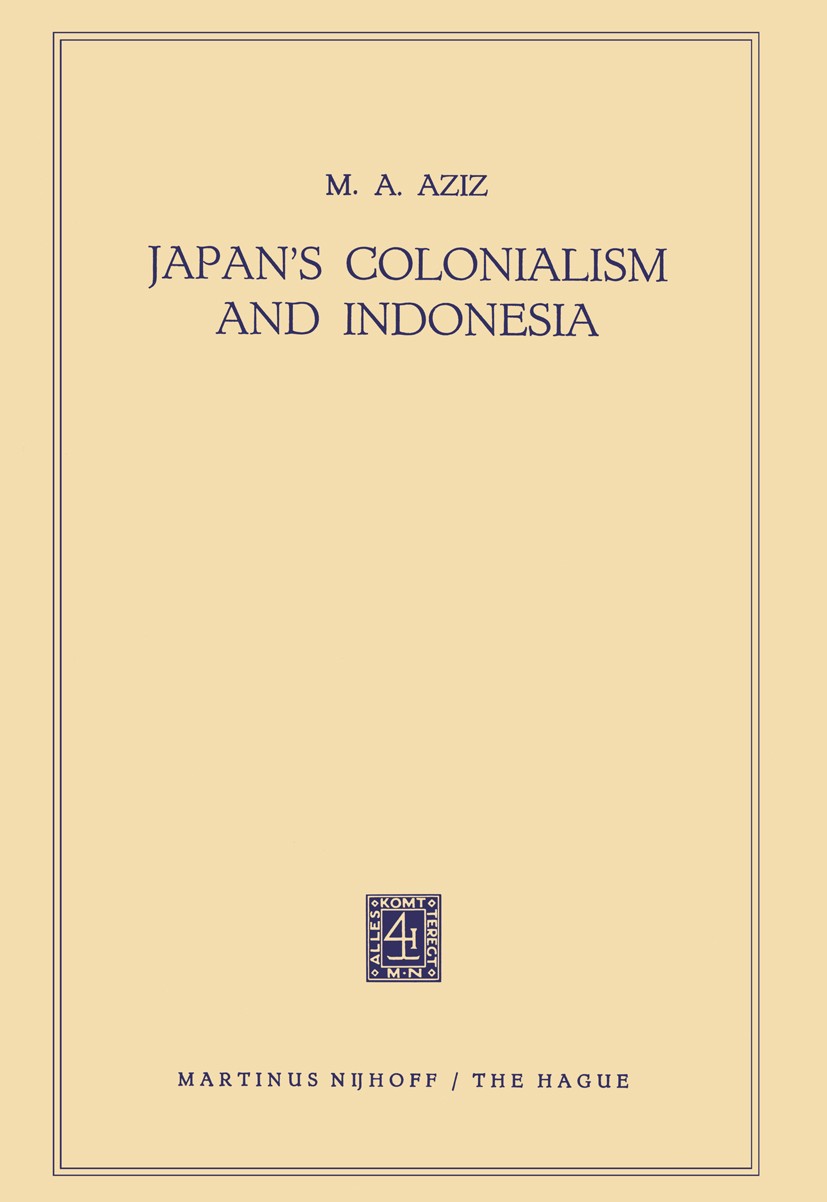| 书目名称 | Japan’s Colonialism and Indonesia | | 编辑 | M. A. Aziz | | 视频video | http://file.papertrans.cn/501/500621/500621.mp4 | | 图书封面 |  | | 描述 | The rise and fall of the Japanese empire constitutes one of the most dramatic episodes of modern history. Within the short span of fifty years Japan grew out of political backwardness into a position of tremendous power. Japan‘s rise to power challenged Europe‘s hegemony over Asia, but, paradoxically, it was Japan‘s fall that caused the irreparable ruin of the colonial system over Eastern lands. Japan went to war against the West under the battlecry of Asia‘s liberation from European colonialism. In reality, for forty years, beginning with her first war against China, she had striven to imitate this colonialism, as she had endeavoured to imitate the political, military and economic achievements of Europe. A thorough understanding of the imitative character of the Japanese Empire might well have induced the leaders of the nation to side with the conservative trend of political thought in the Western world in order to maintain the existing world-wide political system of which colonial rule was an accepted part. They might have understood that an adventurous, revolutionary policy was bound to result in grave dangers for their own state and most conservative structure. Japan might have | | 出版日期 | Book 1955 | | 关键词 | Colonialism; START; nationalism; organization | | 版次 | 1 | | doi | https://doi.org/10.1007/978-94-011-9233-0 | | isbn_softcover | 978-94-011-8500-4 | | isbn_ebook | 978-94-011-9233-0 | | copyright | Martinus Nijhoff, The Hague, Holland 1955 |
The information of publication is updating

|
|
 |Archiver|手机版|小黑屋|
派博传思国际
( 京公网安备110108008328)
GMT+8, 2025-12-15 21:42
|Archiver|手机版|小黑屋|
派博传思国际
( 京公网安备110108008328)
GMT+8, 2025-12-15 21:42


